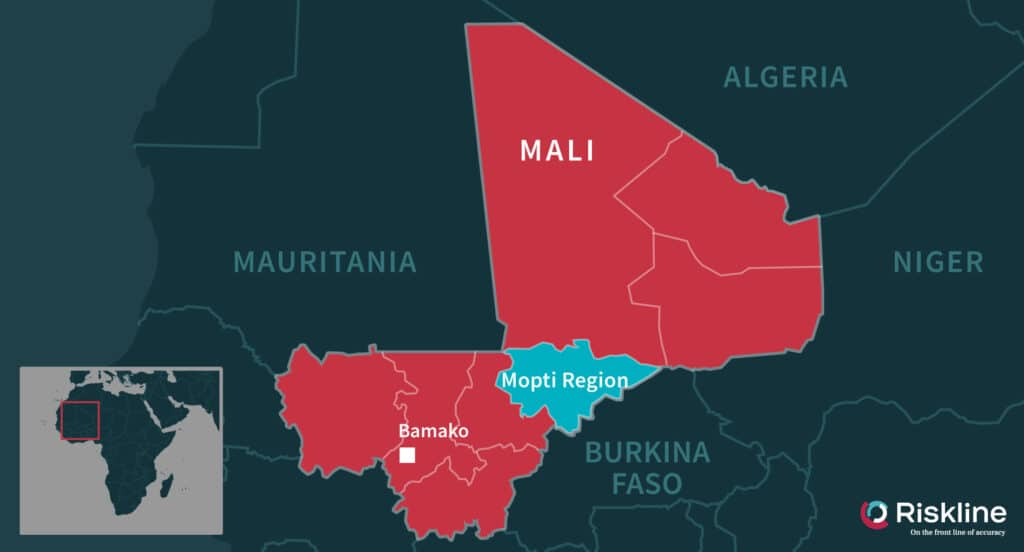On 23 March 2019, 157 people were killed in the village of Ogossagou, located about 12km (7.5 miles) from Bankass in the central Mopti region. The inhabitants of the village were predominantly members of the Fulani (also known as Peul) community, a primarily Muslim ethnic group, and were believed to have been killed by Dan Na Ambassagou (“those who put their trust in God”), an ethnic Dogon self-defence militia, who denied any involvement. The attack, one of the deadliest in Mali’s recent history, is symptomatic of spiralling ethnic violence fuelled by Islamist militancy and failing international counter-terrorism efforts.
While communal tensions have long existed in Mali over access to land, water and grazing areas, recent years have seen an escalation in violent attacks between ethnic communities fueled in part by the effects of climate change and a growing population. The majority of violence has been against the Fulani, however, other ethnic groups, particularly the Dogon and Bambara, have also been targeted which has contributed to a cycle of reprisal attacks. According to Human Rights Watch, at least 300 civilians were killed in over 100 incidents of communal violence in central and northern Mali in 2018, with the majority of those occurring in the Mopti region. In June 2019, dozens of people, including children, were killed during two attacks on Dogon communities in the Mopti region, and dozens of smaller-scale incidents have occurred over the course of 2019, marking an intensification of the cycle of violence.
Dogon and Bambara populations have accused the Fulani of supporting Islamist militants; some Fulani groups have indeed turned to these groups for security reasons amid a sense of persecution and isolation due to a lack of protection from the government. The absence of an effective state security apparatus combined with mistrust between different communities in northern and central regions, has led civilians to increasingly arm themselves and organise into self-defence militias, such as the aforementioned Dan Na Ambassagou. Dan Na Ambassagou has regularly carried out indiscriminate attacks on the Fulani community under the guise of counter-terrorism, and Fulani activists allege that some fighters from the group have cooperated with government officials and state security personnel. Other groups of local “Dozo hunters” from the Dogon and Bambara communities exist and, although they lack the same level of organisation as Dan Na Ambassagou, they have carried out attacks on Islamist forces and against the Fulani.
The main perpetrator of Islamist violence in Mali is Jama’a Nusrat ul-Islam wa al-Muslimin’ (“Support Group for Islam and Muslims”, JNIM), a broad coalition of local Islamist groups including the Saharan wing of Al-Qaeda in the Islamic Maghreb (AQIM) and Katibat Macina (Macina Liberation Front), which is comprised of ethnic Fulani Islamists. In recent years, the group has claimed responsibility for a number of assassinations, bomb attacks and complex attacks on government forces, UN peacekeepers, French troops and other armed groups in Mali, as well as in Niger and Burkina Faso. Aside from their goals of seeking to impose their vision of Sharia law and expel foreign forces from Mali, JNIM has exploited ethnic tensions and anti-government sentiment to boost recruitment and solidify their position. The militant group has been involved in local conflicts attacking Dogon and Bambara groups, while at the same time providing basic services, infrastructure and protection to gain support from local Fulani communities. Many members of the Fulani believe their community is not as protected as other ethnic groups because of their association with Islamists and this feeling of stigmatisation furthers the temptation to join the ranks of JNIM and cements mistrust between the different groups.
Due to a weak and discredited Malian state which lacks legitimacy and control over large parts of its territory, the deployment of international forces is essential for maintaining the country’s security. However, despite the large-scale international presence in Mali – which includes the French-led Operation Barkhane, the UN Multidimensional Integrated Stabilisation Mission in Mali (MINUSMA) (one of the largest peacekeeping missions in the world today), the G5 Sahel Force involving Mali, Niger, Burkina Faso, Chad and Mauritania and support from the United States (US) and European Union (EU) – Islamist militants have continued to successfully conduct attacks across Mali. The international presence, particularly the deployment of French forces, further undermines the government and is politically and militarily advantageous for JNIM and similar groups. Domestic and international forces have also worked with self-defence militias during counterinsurgency operations, exacerbating existing tensions between rival ethnic groups and giving Islamists another excuse to target ethnic self-defence groups and their communities. The increasing levels of ethnic-based violence further complicate counter-terrorism operations as the boundaries of the conflict become more blurred.
The Malian government backed by international forces has been unable to put a stop to or address the grievances behind the increasing levels of ethnic violence. This persisting insecurity combined with a lack of institutional justice has driven ethnic groups to organise into self-defence militias or ally with non-state militant groups, including JNIM, and the conflict is increasingly being played out along ethnic lines to the benefit of the Islamists. Violence based on ethnicity is likely to continue unless the government is able to guarantee the security of ethnic communities and provide justice for past crimes, a task made more difficult due to the weak nature of the Malian state.
Samir Brahimi is a UK-based political and security risk analyst covering Middle East and North Africa.















